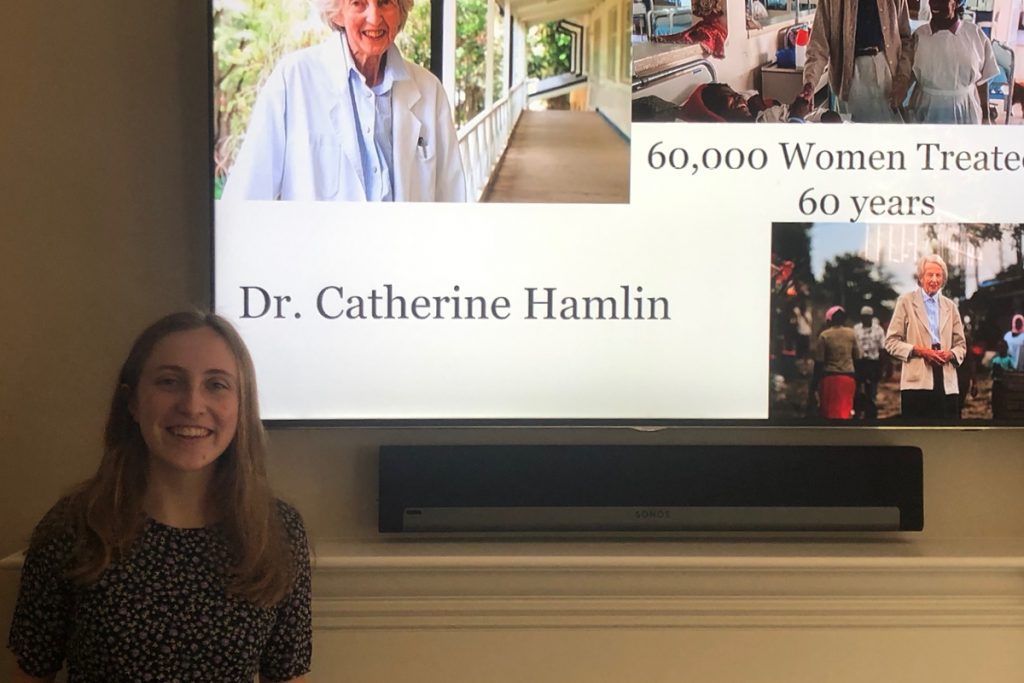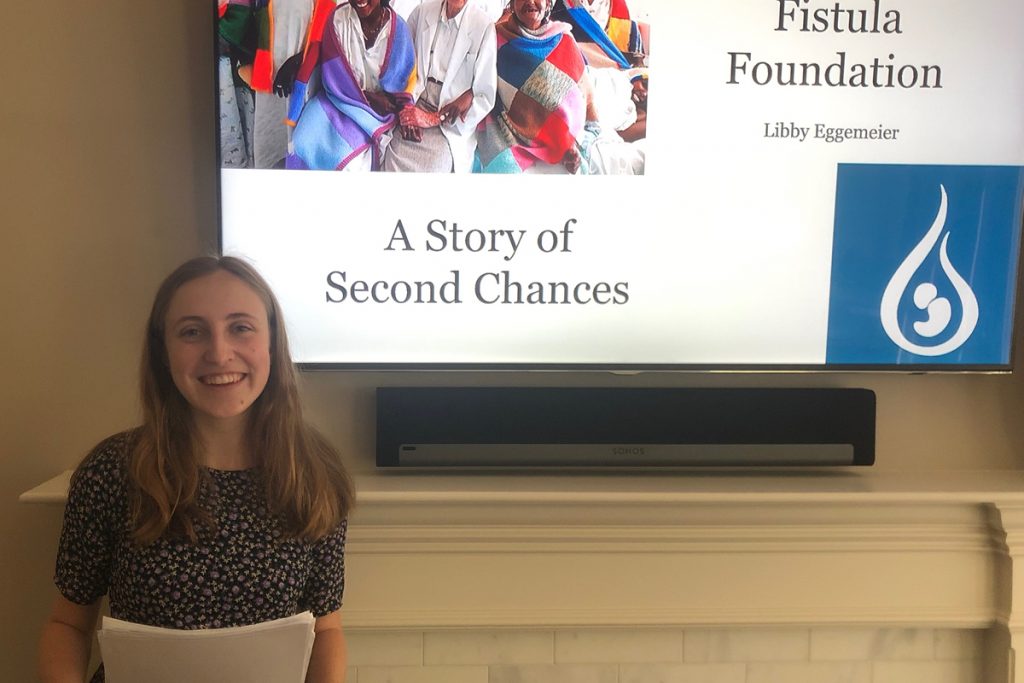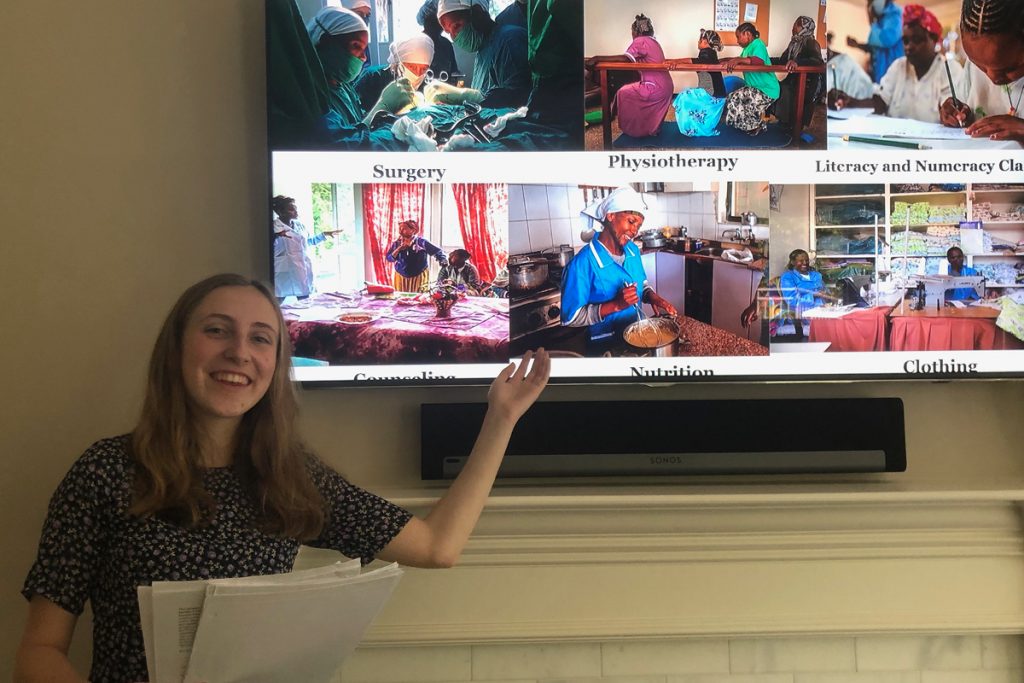Californian student Libby Eggemeier took a normal class assignment as an opportunity to advocate for some of the most vulnerable women in the world. In the process, she won a grant to aid those very women suffering from obstetric fistula!
A junior at the Menlo School in the Bay Area, Libby has always fostered a keen interest in politics and international relations. From running a gender equality and politics club at school to participating in a student advisory board for her district representative in the United States House of Representatives, Libby is a proactive and socially engaged individual. “I’m always looking for ways to read more and listen to podcasts and documentaries – whatever I can to educate myself more about the world around me,” says Libby.
With her school offering ‘Global Issues for Global Citizens’ as an elective, Libby was able to learn about international affairs, Sustainable Development Goals and key global issues like poverty, education, gender equality, health and the environment. Moreover, a large component of the syllabus was an NGO competition in association with the Hand Foundation. The brief of the assignment was simple: students had to identify a cause they were passionate about and advocate for the cause in collaboration with a not-for-profit organization of the student’s choice. Exemplar submissions would then proceed to the second round of the competition: a presentation to members of the Hand Foundation where the best presentation would receive a grant for that student’s chosen organization.
Libby discovered the work of Hamlin Fistula Ethiopia through a profile in the New York Times about its founder obstetrician-gynecologist Dr Catherine Hamlin. “I learned more about the work [of the organization], Ethiopia and the goals of the foundation, and from there I kind of knew that this was the NGO that I wanted to represent. I felt like the foundation was the most effective in treating fistulas in Ethiopia, so I was really excited to share that with my class,” Libby recounts.

Libby’s project looked at the global issue of gender inequity through the specific lens of obstetric fistula and the work of Hamlin Fistula Ethiopia. A keen advocate for gender quality, Libby wanted to do a presentation on an organization that aligned with her values. “Gender connects to health, connects to education – there are a lot of intersections there. I was so happy that I found the Catherine Hamlin Fistula Foundation and how it connected so closely to a lot of my passions,” says Libby.
“What was appealing about the Catherine Hamlin Fistula Foundation for me were the stories of the women. What really stuck out to me was the dedication to improving the lives of women in Ethiopia. I was really impressed by how Hamlin Fistula Ethiopia keeps the focus on the women even while managing this bigger program across Ethiopia [and] I was really impressed by Catherine’s work as a pioneer in fistula [treatment],” explains Libby.
Libby’s skill as a storyteller and passion for public speaking kept her in good stead for the competition. When she gave her presentation to her class in November of last year, they voted for it to advance to the second round of the competition where she and the other finalists presented their work to the Hand Foundation. Out of all of the submissions, Libby’s presentation on gender inequality and the work of Hamlin Fistula Ethiopia was deemed the best and she was awarded a $2000 grant for the Catherine Hamlin Fistula Foundation.

A significant aspect of global gender inequity is maternal health rights, namely a woman’s right to quality medical during pregnancy and after birth. In Ethiopia, over 70% of births take place without a doctor or midwife present; consequently, more than 3,000 fistulas occur each year. A woman’s access to a midwife is key to the eradication of fistula, which is why Hamlin Fistula Ethiopia established the Hamlin College of Midwives in 2007. In the 2019, 30,004 babies were delivered at Hamlin-supported Midwifery Clinics; these mothers were able to access the medical care they needed reducing the likelihood of them suffering a fistula injury to virtually zero.
Raising awareness of these aspects of gender inequity were important for Libby. None of her friends and peers knew of the plight of fistula sufferers in Ethiopia and other developing countries prior to her presentation. “I think fistula injuries are relatively unknown to the Western world just because they aren't common here anymore. We can all be ignorant about maternal healthcare issues because we have made so many advancements and have a pretty modernized system, but we need to look at other countries where those advancements haven’t been made and work with people there to help better those systems.” says Libby.
Despite the obscurity of fistula in the consciousness of many communities in developed nations, Libby remains optimistic about the impact we can all make in the lives of the most vulnerable: “I’m hoping that other people will take classes – if they have the opportunity – like Global Issues and just understand more about the world. We always think we know more than we do. Understanding people who live faraway is so important; we can become really ignorant living in our bubble. It’s important keeping that globalist mindset while more nationalism is on the rise.”
